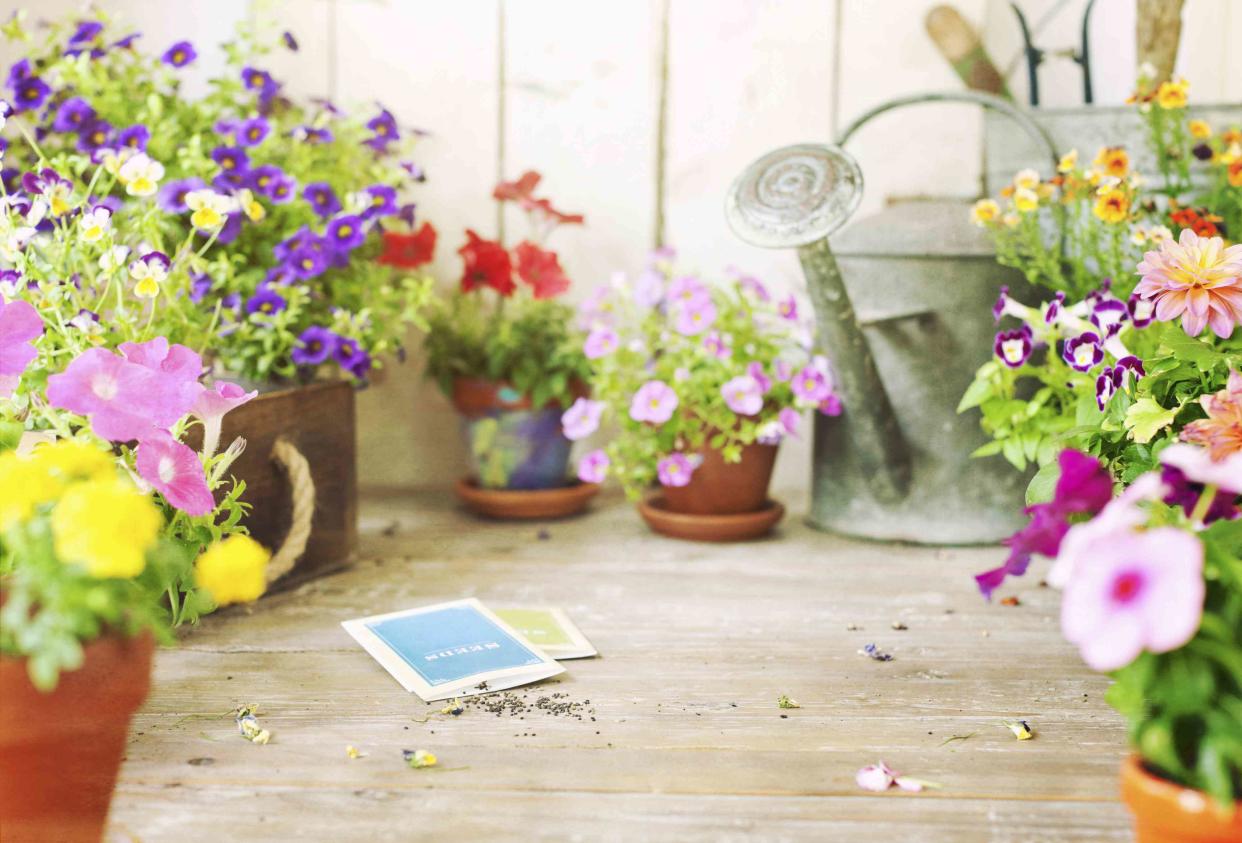Do Seeds Expire? How to Know If Yours Are OK to Plant, According to Garden Experts
Over time, garden seeds lose their ability to germinate strong seedlings.

Liliboas / Getty Images
If you're an avid gardener, chances are you've stumbled across old seed packets you never got around to planting. If you're ready to get them in the ground now, you may be wondering if they're still viable. Over time, seeds can lose their ability to produce strong seedlings, but do they ever truly expire? We tapped gardening experts, who explain whether or not seeds go bad and how to know if yours will still germinate.
Meet the Expert
Carrie Spoonemore, co-creator of Park Seed'sFrom Seed to Spoon, an app that makes garden planning easier
Linda Langelo, horticulture specialist at Colorado State University
Related: How to Order Flower Seeds Like a Professional Gardener
Do Seeds Go Bad?
Seeds will eventually "go bad" with age, which essentially means their viability (the seed's ability to produce a vigorous seedling) fades, and they will no longer germinate. "If not planted, over time their viability decreases due to aging, exposure to light, temperature changes, and moisture content," says Carrie Spoonemore, co-creator of Park Seed's From Seed to Spoon. Depending on seed type, genetics, and storage conditions, seeds can remain viable for varying lengths of time, from a few years to several decades.
What a Seed Packet's Expiration Date Means
Many seed packets come with an expiration date, which usually indicates the period during which the seeds are guaranteed to germinate. "This date can serve as a guideline for consumers as an optimal timeframe for planting for the best germination and healthy growth," says Spoonemore. "Depending on storage conditions and other factors, the seeds can remain viable beyond the date."
Note
While there are estimates for how long seeds last, seed viability can vary depending on the specific species and storage conditions.
Related: This Is How Martha Organizes and Stores Leftover Garden Seeds
Why Certain Seeds Last Longer Than Others
Some seeds last longer than others depending on several factors. "Seeds with a long lifespan often have hard seed coats that provide protection against environmental factors and mechanical damage. Examples are beans, peas, and squash seeds," says Spoonemore. "Seeds with a shorter lifespan have higher moisture content and are more susceptible to degradation. Examples include lettuce, onion, and parsley seeds."
How Long Seeds Last
Seed viability can vary depending on the specific species and storage conditions, but these are the general estimates for how many years seeds remain viable for, Spoonemore says.
Vegetable seeds: Three to six years
Fruit seeds: Two to six years
Flower seeds: One to three years
Herb seeds: One to three years
How to Know If Seeds Are Still Good
Use Martha's foolproof method to know if your seeds are good or no longer viable. She folds 10 seeds in a moist paper towel and places them in a resealable bag, labeling the bag with the date and type of seed. She then waits to see how many seeds germinate. Multiply the number of seeds that germinated by 10 to calculate the percent of germinations. More than 70 percent is passing. If between 40 and 60 percent of the seeds germinate, she says to sow thickly. If less than 40 percent germinate, consider buying fresh seeds.
Related: The 11 Best Places to Buy Seeds for Your Garden Online
How to Store Seeds So They Last Longer
Seeds should always be stored in a cool, dry place, says Linda Langelo, horticulture specialist at Colorado State University, adding that the area should ideally be around 45 degrees Fahrenheit and have less than 8 percent humidity. The basement, a dark closet, or the refrigerator are all good options. Avoid storing seeds in sunlight or an area with high temperatures and humidity, which will speed up degradation.
Remove seeds from the packages they came in and store them in a labeled airtight container. "To be sure your container is airtight, submerge it underwater and if it does not leak, then it is an ideal container," Langelo says. In the bottom of the container, add a desiccant, like rice, to absorb moisture. If you're saving seeds from plants in your garden, make sure the seed you chose is in good condition from a healthy plant.
Read the original article on Martha Stewart.
